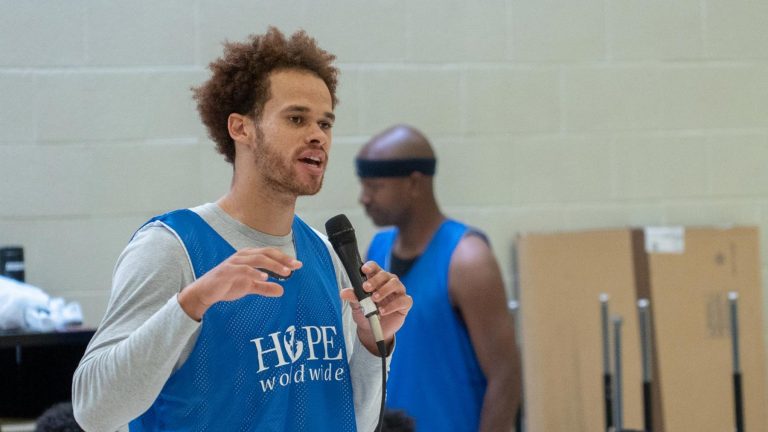Lewis Sheats is executive director of the Entrepreneurship Clinic at N.C. State University in Raleigh, N.C. This is an initiative that exposes students to experiential learning, embeds them in the entrepreneurship community and provides the resources needed to execute their own ideas. In short, this program helps give students an entrepreneurial mindset.
We wanted to know why a major university like N.C. State thought it was important to teach students about being entrepreneurs and what students get out of the program.
Q: One of the things I noticed is that the clinic’s goal is to create both start-up founders and team leaders at larger organizations, which interested me because a lot of the people who write about and talk about the entrepreneurial mindset seem to regard it as something that it is hard to develop at large businesses – that those businesses have rigid hierarchies and stifle creativity, etc. But you seem to take the approach that you can get that entrepreneurial mindset into larger organizations.
A: I agree that some larger organizations lose touch with that creativity and critical thinking piece that you need to have. What we do in the clinic is we’ve taken the hospital teaching model and applied it to entrepreneurial education. If you want to be a doctor or a nurse, they put you beside a doctor or nurse and let you get hat hands-on experience. We’ve replaced the doctor with an entrepreneur and we’ve replaced the patient with a real company. What that does is engage students in experiential learning and gets them to see what happens behind the scene in ideation, creation and building a company.
The misconception about an entrepreneurial program at a university is that it’s focused on launching new companies. That can be a great byproduct – and we’ve had some good companies that have launched from our organization – but our focus is on developing a new mindset in students that they can apply in their own new venture or a new venture they join or in a larger corporation that still can be entrepreneurial in nature – think of companies like Red Hat or Citrix or Under Armour – and used for new product development, new market development and that kind of thing.
We want our students to join companies like that and immediately make an impact by being able to look at problems differently and articulate a solution.
Q. What kind of feedback are you getting? When your graduates go out and work for these companies, are they getting strong pushback? Or is this entrepreneurial mindset being seen as something that’s needed?
A: It’s definitely being accepted. …Most [graduates] are going to work for large companies. If you look at 10 job postings on Indeed or Monster.com, eight or nine of them are going to say something like “self starter,” “motivated,” “problem solver,” “creative thinker.” A lot of these things tie back to this entrepreneurial mindset where we put students in a position to recognize opportunities then give them the tools to be able to ideate solutions to those opportunities, then give them the tools to actually do it, whether building a team, building products or building a service.
Q: So you’re giving companies what they need to survive – the companies that know what they need to survive.
A: Yes, and not all large corporations necessarily recognize that that’s what they need but hopefully the education of the students we provide will help bring that into the light.
Q: Do you think we need to teach this mindset early? Is college even too late?
A: I don’t think it’s too late. I think we can teach it earlier though. As I get students that are coming in from high school who already have had some exposure to entrepreneurial thinking, they are ahead of others students who haven’t had that. But it’s not too late. In fact, there was a recent study that showed that entrepreneurs who launch companies after the age of 35 are typically more successful. And the reason is that they have that experience and then they can apply it. What we’re trying to do in our program is shift that experience into a college environment. If we can shift a little bit of that experience into a college environment we can shorten the learning curve.
Q: Is there any age that’s too early?
A: I haven’t found that yet so I’m not sure
Q: Even at the elementary school level what they can learn will help them later in their careers?
A: If nothing else, the creative thinking and the problem solving that comes from an entrepreneurial mindset will add tremendous value to the education of any young person.
Q: In an entrepreneurship mindset a tool you need to survive or is it a tool that will make rich and famous?
A: I don’t think rich and famous is necessarily the right metric for success or a goal for everybody – I think you should determine that on an individual level – but what an entrepreneurial mindset will do is put you in a position to reach success however you definite. It. Not everybody is going to be driven by monetary considerations. It could be a better life for your children, it could be more access to experiences. …It’s more about what makes you happy.
Q: If you were a young entrepreneur what field would you consider a good field to go into?
A: I wouldn’t necessarily name a field but I would say that as a young entrepreneur you should find something that you’re very passionate about and become good at it…If you’re passionate about art, for example, you look at the arts differently. With an entrepreneurial mindset, you recognize opportunities more easily and the you understand how you can define solutions for those opportunities. …Find something you’re really passionate about – it makes the tough days not so tough and the good days even better.





